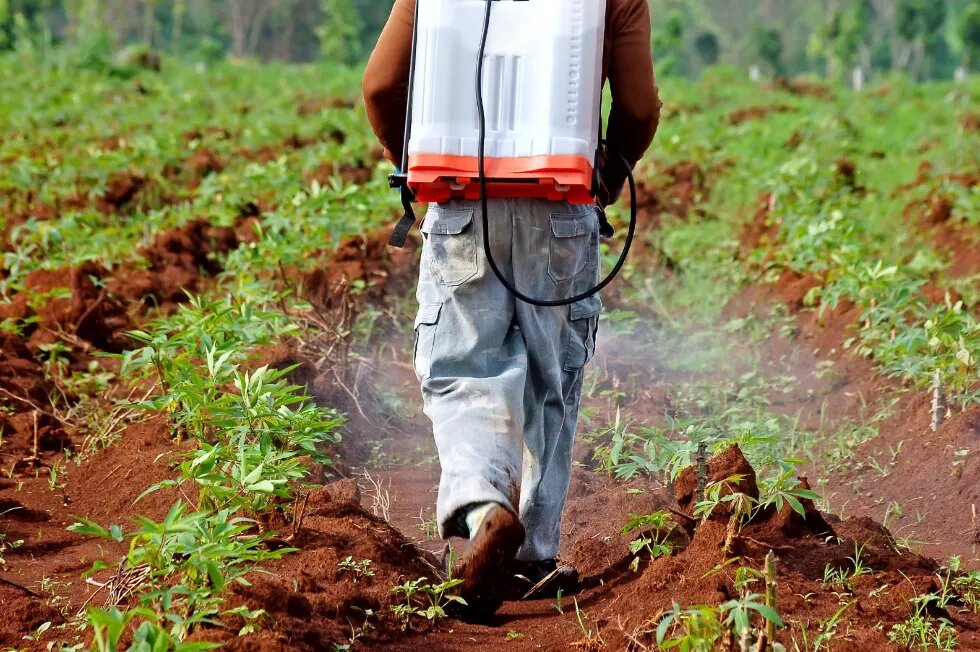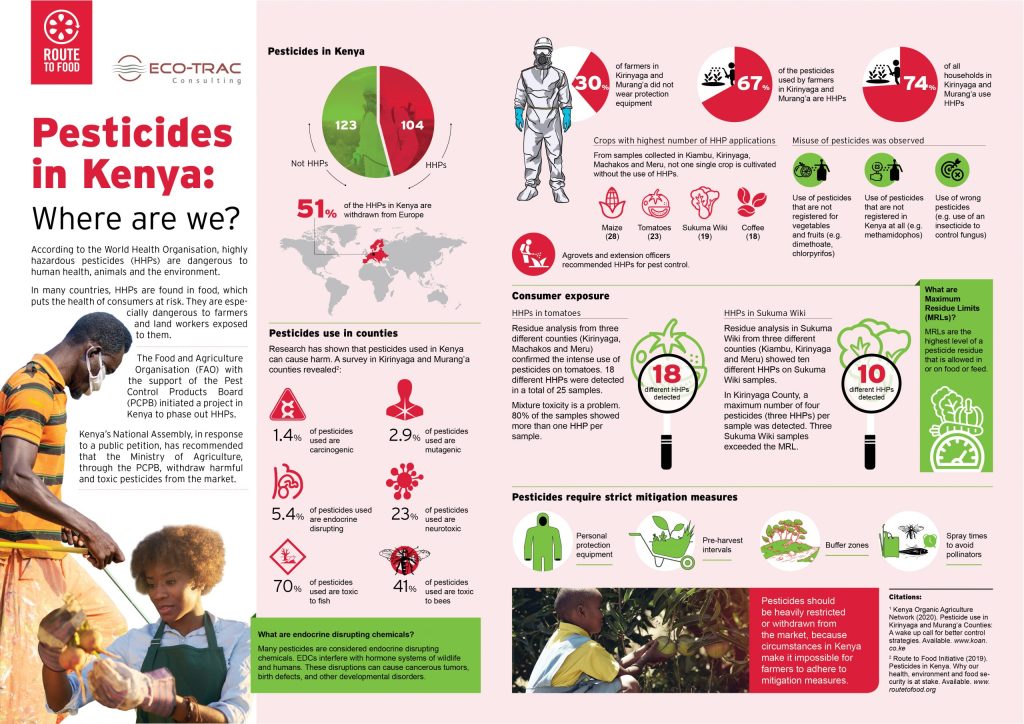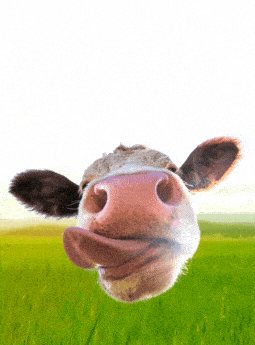Pesticide Perils: A Toxic Threat

Introduction
Pesticides, while essential for agricultural productivity, pose significant risks to human health and the environment. These chemical substances, designed to control pests, weeds, and diseases, can have far-reaching consequences. This article delves into the dangers of pesticides, highlights those banned in Europe, and examines the concerning use of harmful pesticides in Kenya.
The Dangers of Pesticides
Pesticides can have detrimental effects on:
- Human health: Exposure to pesticides has been linked to a variety of health problems, including:
- Cancer
- Neurological disorders
- Respiratory issues
- Reproductive problems
- Birth defects
- Skin diseases
- Environmental health: Pesticides can contaminate water sources, harm wildlife, and disrupt ecosystems. They can contribute to:
- Pollution of water bodies
- Decline of pollinators, such as bees and butterflies
- Loss of biodiversity
- Soil degradation
Dangerous Pesticides Still in Use in Kenya and Their Manufacturers
Note: Pesticide manufacturers often change, and some may have been acquired or merged with other companies. This list is based on information available as of early 2024.
Herbicides
- Paraquat: Syngenta (now part of Corteva Agriscience)
- Glyphosate: Bayer (formerly Monsanto)
- Atrazine: Syngenta (now part of Corteva Agriscience)
- 2,4-D: Dow AgroSciences (now part of Corteva Agriscience)
- Dicamba: BASF
Insecticides
- Chlorpyrifos: Dow AgroSciences (now part of Corteva Agriscience)
- Diazinon: Syngenta (now part of Corteva Agriscience)
- Malathion: American Cyanamid (now part of Syngenta)
- Fenthion: Sumitomo Chemical
- Cypermethrin: Bayer
Fungicides
- Captan: Rohm and Haas (now part of DowDuPont)
- Mancozeb: BASF
- Chlorothalonil: Dow AgroSciences (now part of Corteva Agriscience)
- Propiconazole: BASF
- Tebuconazole: Bayer
Others
- Aldicarb: Union Carbide (now part of DowDuPont)
- Carbofuran: Union Carbide (now part of DowDuPont)
- Methamidophos: Bayer
- Ethylene dibromide (EDB): DowDuPont
- Lindane: Velsicol Chemical Corporation (now part of DowDuPont)
Please note: This list is not exhaustive, and there may be other harmful pesticides in use in Kenya. Additionally, some of these pesticides may be used under strict regulations or for specific purposes. It’s essential to consult with local authorities and experts for the most accurate and up-to-date information.
These pesticides are used in a variety of crops, including:
- Maize and wheat: Herbicides like 2.4-D, S-metolachlor, glyphosate, atrazine, and paraquat are used
- Coffee: Highly hazardous insecticides, fungicides, and herbicides are used
- Potatoes and tomatoes: Mancozeb, a fungicide banned in the EU, is widely used. Diazinon and thiamethoxam are also used in tomato production
According to a September 2023 study by Human Rights Watch, Syngenta and Bayer AG have the largest market share for pesticides in Kenya. The study found that over 65% of the pesticides sold by Syngenta and nearly 85% of those sold by Bayer are classified as “highly hazardous”.
Food rights groups in Kenya have asked the government to ban all imports of highly hazardous pesticides and phase out their current use
For more detailed information, you may want to explore these resources:
- Heinrich Böll Foundation: https://ke.boell.org/en
- Science Africa: https://www.linkedin.com/posts/renato-oliveira-e-souza-3573021a6_restricting-access-to-pesticides-and-firearms-activity-7219356564455886850-zN7S
- Human Rights Watch: https://www.hrw.org/africa/kenya
References
- Heinrich Böll Foundation: Highly Hazardous Pesticides in Kenya. https://ke.boell.org/en/tags/pesticides-and-food-safety
- Science Africa: More than Half of Pesticides Highly Harmful. https://www.linkedin.com/pulse/scientists-warn-massive-pesticide-residue-foods-potential-juma
- Human Rights Watch: Kenya: Ban Use of Highly Hazardous Pesticides. https://www.hrw.org/news/2023/09/14/kenya-ban-use-highly-hazardous-pesticides
Conclusion
The widespread use of pesticides poses a significant threat to human health and the environment. While efforts have been made to restrict or ban harmful pesticides in many countries, including Europe, these substances continue to be used in developing nations like Kenya. It is imperative to adopt sustainable agricultural practices that minimize the use of pesticides and prioritize the protection of public health and the environment.

Disclaimer: While I’ve done my best to provide a comprehensive list, it’s important to note that pesticide usage and regulations can change rapidly, and information may not always be publicly accessible or entirely accurate. For the most current and reliable data, please consult with local authorities, environmental organizations, or agricultural experts in Kenya.


